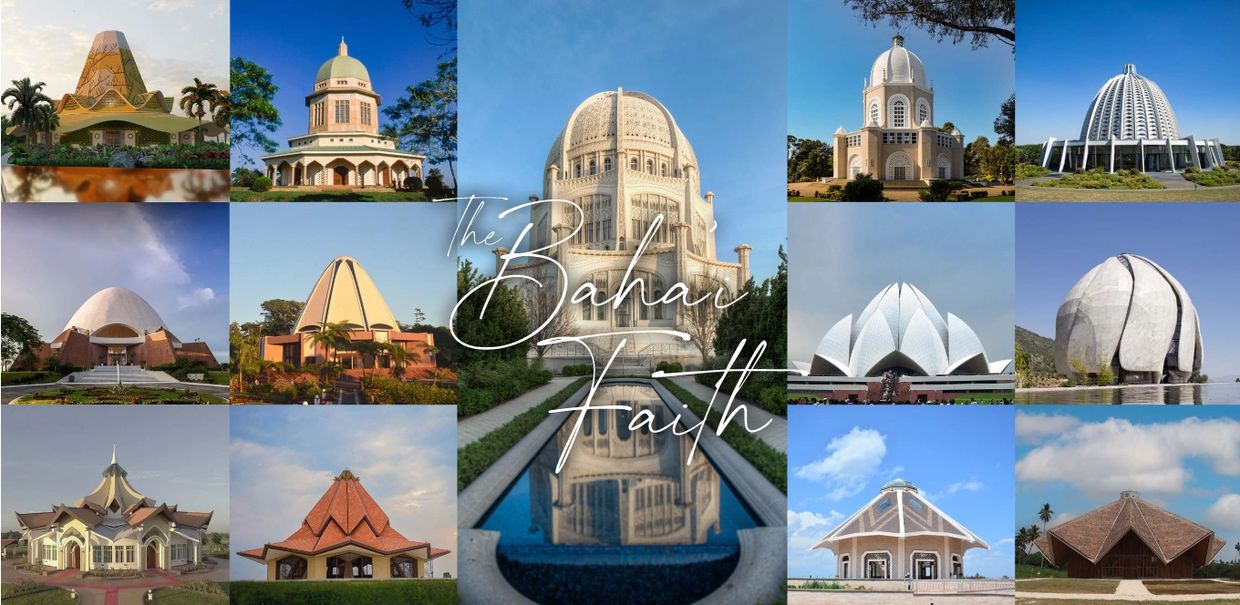The intersection of the Bahá’í Faith and Islam represents a captivating tapestry woven from the threads of history, theology, and shared aspirations. What happens when two distinct yet interconnected religions embark on a journey of faith? This inquiry not only invites contemplation but also poses a profound challenge: can an understanding of Bahá’í teachings foster a deeper appreciation for the essence of Islam, and vice versa? This exploration delves into the fundamental pillars of both faiths, their historical contexts, and the compelling dialogues that can emerge from their elegant interplay.
In the late 19th century, Bahá’u’lláh diverged from the Islamic tradition, proclaiming a series of revelations that emphasized unity, peace, and the oneness of all religions. The title ‘Bahá’í’ derives from his name, translating to ‘the Glory of God’. At its core, the Bahá’í Faith posits that God is singular and all religions are but varying interpretations of the same divine truth, reflected through the lens of cultural and temporal contexts. This tenet invites a reevaluation of religious exclusivity, challenging adherents to embrace a more holistic, inclusive understanding of spirituality.
Islam, on the other hand, is founded upon the revelations received by the Prophet Muhammad in the 7th century CE, encapsulated within the Qur’an. It emphasizes the absolute oneness of God (Tawhid) and underscores the significance of faith, moral rectitude, and community. Within its rich doctrinal framework, Islam teaches compassion, justice, and the importance of human relationships—a philosophy that resonates harmoniously with Bahá’í principles.
At first glance, the divergence in the foundational beliefs of Bahá’ís and Muslims may seem significant; the former interprets the unfolding of religious truths as a progressive revelation, while the latter staunchly upholds the finality of Muhammad’s prophethood. However, as we delve deeper into the teachings of both faiths, a serendipitous harmony reveals itself. For instance, the Bahá’í concept of progressive revelation acknowledges the legitimacy of past prophets, including Muhammad, thereby esteeming Islamic teachings, while also advocating for a broader and more inclusive understanding of God’s will.
Moreover, the Bahá’í commitment to social justice parallels the Islamic call for societal responsibility. Both faiths hold that spiritual growth transcends individual devotion; it is intrinsically linked to the welfare of society. The Bahá’í principle of the oneness of humanity challenges followers to confront issues such as racism, inequality, and environmental degradation, mirroring Islam’s emphasis on community service and ethical stewardship.
Dialogue between Bahá’í and Muslim communities can illuminate these shared strands of thought. Consider the impact of interfaith dialogue initiatives, which encourage collective discussions on social and ethical issues, fostering a sense of unity within diversity. Such dialogues challenge participants to reflect critically on their beliefs while simultaneously cultivating mutual respect and understanding. The philosophical conundrum arises: can one sincerely embrace the teachings of their own faith while acknowledging the transformative insights found within another? The answer lies in an open heart and a willingness to learn.
A critical examination of the role of religious laws showcases another area of intersection. Both Bahá’í and Islamic teachings provide ethical frameworks intended to enhance the lives of adherents. However, the Bahá’í approach advocates for the reinterpretation of laws in light of contemporary moral issues, urging followers to adopt a dynamic perspective that accommodates evolving societal norms. In contrast, Islamic jurisprudence (Sharia) relies on a rich tradition of scholarship and interpretation, which itself grapples with the challenge of applicability in modern contexts. Thus, the inquiry arises: how might these differing approaches to law influence contemporary conversations about governance, human rights, and ethical standards across societies where both faiths coexist?
As discussions progress, it would be remiss not to highlight the intrinsic value of prayer and meditation in both religions. For Bahá’ís, daily prayer serves as a conduit for personal communion with God, while in Islam, the five daily prayers (Salah) act as a spiritual anchor, fostering discipline and mindfulness. Each practice nourishes the soul, compelling followers to seek personal clarity while reinforcing their communal commitments. This facet opens the door to a playful yet critical question: how does the linguistic and cultural expression of prayer affect the devotional experience for adherents of both faiths? Each tradition conveys profound truths, yet the forms of expression can provide insight into broader theological perspectives.
Ultimately, the journey of faith between Bahá’í and Islam is not merely an academic exercise but a transformative expedition. Embracing the commonalities, navigating the divergences, and fostering respectful dialogue cultivates a fertile ground for mutual understanding and cooperation. In a world increasingly characterized by division, the insights derived from Bahá’í teachings can enrich the Islamic experience, while the moral guidance of Islam can lend depth to Bahá’í understanding. Where challenges arise, so too do opportunities for connection and enriched spiritual lives.
As communities continue to engage in conversations that bridge these two unique faiths, a mosaic of shared values and collective aspirations emerges, offering pathways toward not just coexistence but shared endeavors toward a just and equitable society. The ultimate challenge beckons: are we ready to listen, learn, and rise together, drawing strength from the mosaic of our diverse beliefs?
